


Along with records broken and medals celebrated, competing at the Olympics is more often littered with narrow defeats, last-gasp errors and mental meltdowns that build true character and sportsmanship.
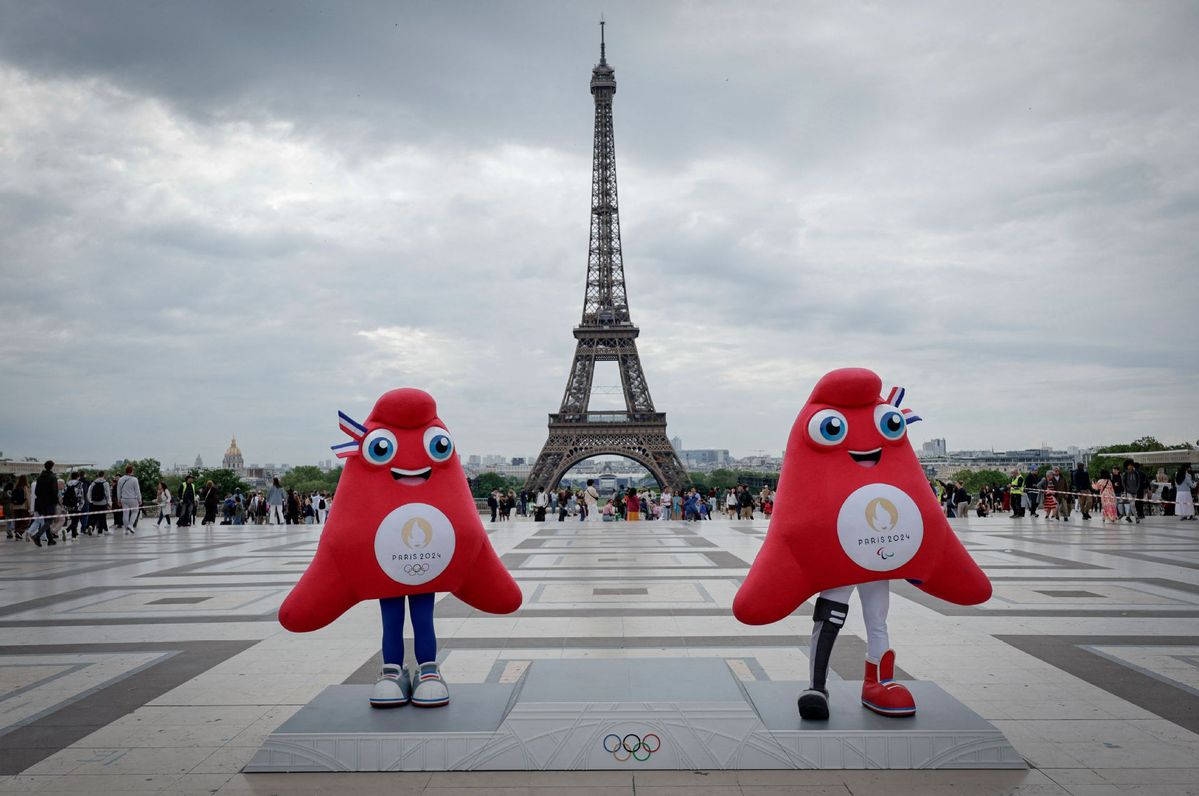
PARIS - The podiums of the Paris Olympic and Paralympic Games were unveiled at the headquarters of the games' organizing committee on Thursday.
Like the medals, the design of the podiums also draws its inspiration from the landmark Eiffel Tower with the metal lace structure outlines the exterior surface of the podium.
Featuring a sleek and elegant color scheme of grey and white, the podiums are made of wood and 100% recycled plastic and employ a modular design to accommodate the needs of different events.
For instance, the shortest podium, used for individual events, consists of 3 modules and is approximately 4 meters long. The podium for the football award ceremony uses the most modules, totalling 43, with an overall length of 40 meters.
Each podium weighs approximately 45 kilograms. The Paris Organizing Committee has prepared a total of 685 modules, 45 of which are reserved as backup modules.
"The podium is the ultimate symbol of performance and its celebration. For Olympic and Paralympic athletes, reaching the podium is an achievement. It is the conclusion of a long journey," said Tony Estanguet, the president of the organizing committee.
Gold medalists will stand on a 35cm high podium, while silver and bronze medalists will stand on a 20cm high podium.
The same design will be used for the Paralympics, but the top three athletes will all stand on a 20cm high podium with a sloped ramp on the side for wheelchair accessibility.
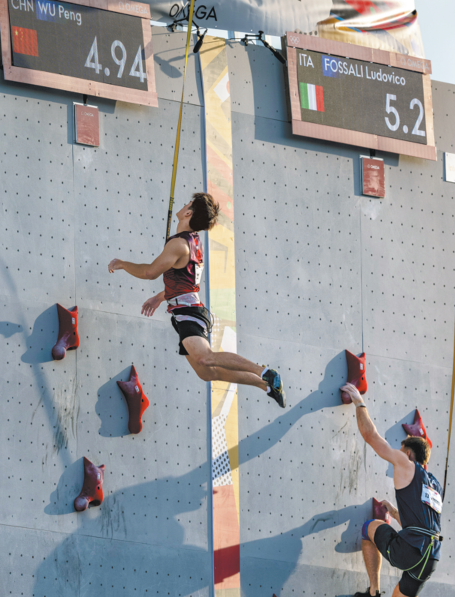
Don't blink or you will miss it! That's the number one rule the new fans of speed climbing learned quickly, as they watched the gravity-defying action — described as "a sprint race gone vertical" — at the Huangpu Riverside in Shanghai during the Olympic Qualifier Series' first leg last week. Sixty-four elite climbers, across both men's and women's events, vied one-on-one for ranking points at the penultimate qualifier for Paris 2024.
In particular, it was the blockbuster men's final between China's world No 1 Wu Peng and Indonesian legend Veddriq Leonardo on Saturday that left the crowd in awe, as both climbers sprinted up the hold-studded 15-meter-high wall in under five seconds — even faster than many could run that distance on the track.
As a former world record holder, Leonardo cemented his leading position en route to Paris, as he outdid the host's surging world No 1 by tapping first in the final in a personal best time of 4.83 seconds, edging out Wu by 0.05 seconds.
Despite missing out on first place, Team China proved its golden credentials in the discipline for Paris 2024, where speed climbing will make its debut as a stand-alone medal event, with podium finishes for Wu and third-placed Wang Xinshang, and rising star Zhou Yafei dominating the women's race.
As the only two athletes consistently breaking the five-second mark in Shanghai, Wu and Leonardo will be expected to challenge reigning world record holder Samuel Watson of the United States, who has secured a direct Olympic berth by winning last year's Pan American Games title, in Paris should they maintain their scintillating form at the final OQS event, which takes place in Budapest, Hungary, from June 20-23.
Watson set the new men's speed climbing world record at 4.79 sec in a qualification run at the World Cup series meet in Wujiang, Jiangsu province, last month.
Wu hailed the Indonesian veteran's consistency as an inspiration for him to push harder to fulfill his own Olympic goals.
"He is calm and he is competitive. And he is very self-disciplined, working very hard in training," said Wu, who beat Watson in the big final in Wujiang, winning his second career World Cup title.
"My body condition is not as good as yesterday (during qualification). I don't know why. I just feel a bit tired. I thought I could climb faster, though. I didn't perform as I wanted. It makes me a little bit frustrated, but, at the same time, motivates me to do better in the next event," said Wu.
The women's race in Shanghai also bore witness to the collective strength of Team China, as all four home athletes made it to the round-of-16 battles, before Zhou stole the show by winning her first major international title.
Racing against Indonesia's world No 5 Rajiah Sallsabillah in the final, Zhou, who edged out her senior teammate Niu Di in the semis as the underdog, continued her odds-defying run by reaching the top of the wall first with a PB of 6.54 sec — drawing thunderous cheers from the Shanghai crowd.
The home win has put Zhou on top of the qualification standings, capping a perfect birthday week for the Zhejiang native, who turned 20 on May 15.
"This is the first time in my career that I finished on top of the podium at an international event. I am over the moon now," said Zhou, who was only called up to the national team last year after winning her first national title.
"I just did what the coaches asked me to do in the winter training camp. I worked as hard as I could. I actually had better results in training. I just need to be more relaxed when I climb in official competitions to be faster," Zhou said.
At sport climbing's Olympic debut at Tokyo 2020, the event only offered a single gold medal and required athletes to compete in all three disciplines — boulder, lead and speed — being ranked from a combined score.
The Paris Games will see speed singled out as a separate medal discipline alongside boulder and lead combined, doubling the total medals on offer.
As a fast-emerging contender in the speed discipline, Team China has already seen men's climber Long Jinbao and women's star Deng Lijuan qualify for Paris via their 2023 world championships runner-up finish and Asian Qualifier win, respectively.
The final qualifier in the Hungarian capital will see Chinese climbers go against not just international rivals, but also their own teammates, to vie for the remaining two quota places, one each for the men and women.
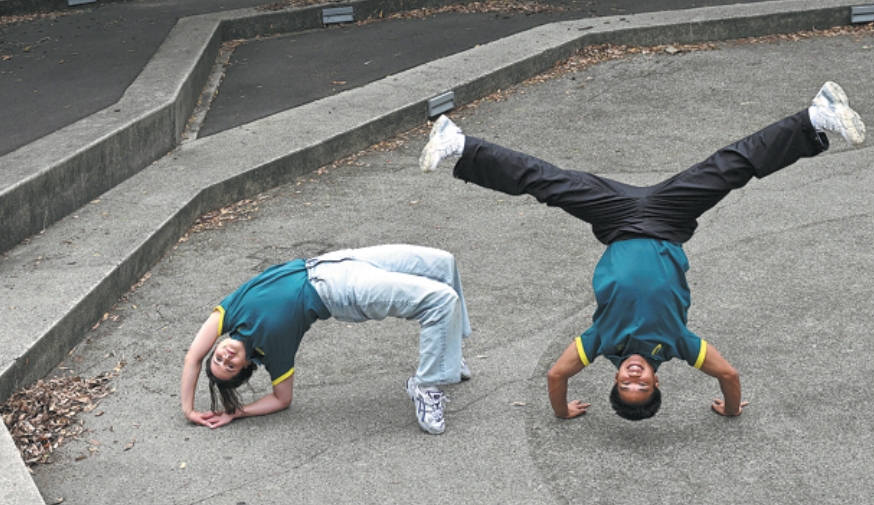
MELBOURNE — The athletes battling for breaking gold at the Olympics will bring an array of tricks to Paris, but Australia's Dr Rachael Gunn may be the only one armed with a PhD in the sport's culture.
The 36-year-old B-girl known as 'Raygun', a portmanteau of her name, completed a thesis in 2017 on the intersection of gender in Sydney's breaking scene, while training to become one of the nation's top dancers.
The Macquarie University lecturer will soon take time out from academia to compete at the Place de la Concorde, where breaking will make its Olympic debut some 50 years after emerging from the streets of the Bronx in New York.
A university faculty office may seem an unlikely habitat for a breaking champion, and Gunn laughs when confirming she is unaware of any other academics moonlighting in the sport.
"People certainly think it's cool and interesting, but it's also really different to the classic academic path," she said.
"So, you do get a few different reactions, but, by and large, the response has been really positive."
Gunn did not take up breaking until in her mid-20s and stands out among the teenagers that have already qualified, including Lithuanian world champion Dominika Banevic, a 16-year-old who competes as "B-girl Nicka".
Australia's male qualifier Jeff "J-Attack" Dunne is also 16.
Yet Gunn is far from an anomaly, with American rival Sunny Choi also set to fly the flag for mid-thirties breakers in Paris after giving up a corporate career.
Younger bodies have it easier when learning and perfecting "power moves", the more acrobatic elements of breaking that often demand speed, strength and momentum, Gunn concedes.
However, she is still trying out — and nailing — new elements with the help of her husband and coach Samuel Free, also a competitive breaker.
"It's a different experience. I obviously spend more time warming up, more time in recovery and just make sure I look after my body," said Gunn. "I don't think a 20-year-old needs to worry as much about those things."
Two gold medals are up for grabs in the breaking competition in Paris, one each for the best B-boy and B-girl.
Dancers compete in one-on-one battles in three, minute-long "throw downs", with the music chosen by a DJ and performances scored by a panel of judges.
Breaking was popular at the Youth Olympics in Buenos Aires in 2018, and drew enthusiastic crowds at its Asian Games debut in China last year.
However, breaking's addition to the Olympic program has had its detractors, with cynics dismissing it as a desperate ploy by the International Olympic Committee to attract a younger audience, and questioning how its underground roots and street culture fit with the sanitized nature of the Olympics.
Though Raygun can see both sides of the debate, she raves about a highly accessible sport, which has become a lot more inclusive and respectful of women since she penned her thesis.
The Olympics may also help put breaking on the map in Australia, where there are limited moneymaking opportunities compared to markets in East Asia and Europe.
"Breaking has such a positive force and impact on the lives of people that do it," said Gunn.
"They get fit, they get a creative outlet and become part of this community.
"The platform that the Olympics give us to inspire new generations of people is positive."
Reuters
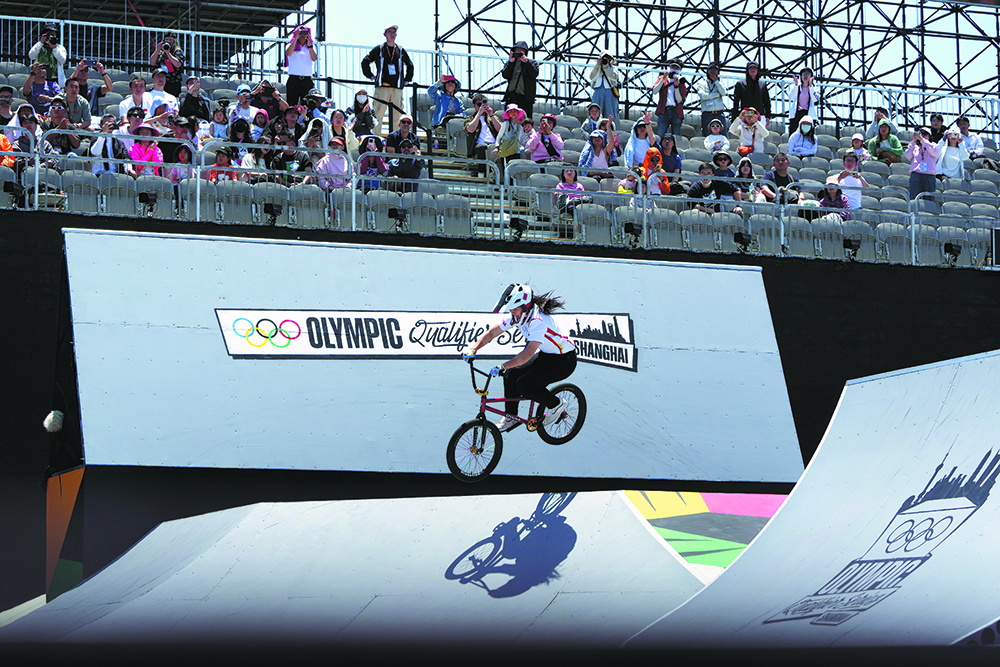
A false landing ruined his first run, before the early-summer heat threw him off the pace in his second attempt. Daniel Dhers, however, was all smiles at the conclusion of BMX freestyle park finals on Saturday at Shanghai's Huangpu Riverside. Not for a sub-par 10th-place finish at the critical Olympic qualifier, which may prove costly for his own Paris 2024 prospects, but more for seeing three home riders sweep the women's podium as a coach of the Chinese BMX team.
"It's been a rollercoaster of emotions today," the legendary Venezuelan rider, known as the "Godfather of BMX", said after watching China's Sun Sibei, Sun Jiaqi and Deng Yawen finish one, two and three, respectively, in the women's final to a rousing reaction from the Shanghai crowd.
"It started with the girls and they absolutely destroyed the competition. Top three, it's crazy. I will use their results as my motivation to do better myself in Budapest. Hopefully, I can still make it to Paris," said Dhers, who started coaching Team China about a year ago.
Coaching full-time while also riding himself, Dhers is embracing the balancing act — the latest challenge of a celebrated career for the 39-year-old BMX freestyler, who has seen it and done it all in an action sport defined by many popular tricks that he invented and perfected, all while collecting a hatful of awards, including a silver medal at Tokyo 2020 and five X-Games titles.
Securing a second Olympic trip to the French capital with the remaining ranking points up for grabs at the second qualifier in Budapest next month would be the icing on the cake, but Dhers' legacy as a rider has been secured.
Riding against, and along with, many of the world's elites at different events, Dhers enjoys the camaraderie within the sport's community that has been evolving around his base camp — the Daniel Dhers Action Sports Complex — built at Holly Springs in North Carolina exactly 10 years ago.
To many of the younger generation, such as five-time women's world champion Hannah Roberts of the United States, and men's reigning Olympic champion Logan Martin, Dhers is more of an idol or mentor, rather than a threat.
He now seems more devoted to helping the "Kingdom of Bicycles "land the ultimate prize, even though he initially turned down the Team China offer last year.
"I said 'no' for, like, a month, and the main reason was because I just didn't really have the time. I'm busy traveling and have other endeavors with sponsors," explained Dhers, who was approached by Team China before last August's world championships in Glasgow.
"They gave me a tremendous amount of flexibility, and here we are.
"I'm here to help them try to win the gold and silver at the Olympic Games," said the ambitious Dhers.

Ride together
To his surprise, the level of Team China's BMX program, which was built in 2018 with most riders drafted from other sports, was already high enough.
It didn't take long before Dhers' guidance began to pay dividends in the international arena.
In their first event working together at the UCI World Cup in Montpellier, France, Zhou Huimin landed a women's gold ahead of Tokyo 2020 silver medalist Roberts, while Sun Jiaqi, Sun Sibei and Deng all finished in the top seven.
Deng later went on to win her first Cup series title on home turf in Bazhong, Sichuan province, in October, following Sun Sibei's runner-up finish at the worlds behind the victorious Roberts.
The Chinese riders' meteoric rise, which might have looked sudden to an outsider, did not surprise Dhers at all.
"The team already had a lot of good stuff, they already had a good progression," he said, adding that the work ethic of the Chinese athletes is second to none.
"They just didn't have direction. There's a million tricks and different things, so, where do you focus your energy?"
Riding, living and traveling together with his Chinese students, Dhers has naturally seen his input on technique, trick selection and BMX culture trickle through.
"We are basically on the same program. They do go over a lot of smaller details than I do, but we ride together every day, we go to the gym every day. What I ask them to do, I do, and vice-versa," Dhers explained.
"What happens a lot, is that they try tricks (in training) that they're scared of. Then I'm like, 'I now need to try a trick that I'm scared of'. I need to be on par with them, even though I know we are at different levels. The fear is the same. They motivate me that way."
With riding, communication is easy, despite the language barrier, Dhers reckons. To try to blend the culture with management is a bigger ask, though.
The different dynamics within the Chinese system, compared to the Western way, was felt at the first team lunch.
"I sat with the riders, and the team leader told me to come to another table (with the other officials)," Dhers recalled with a grin. "I was like 'I'm a rider, too'. I like hanging out with the riders."
"I am flexible. I don't care what you say and what you do, as long as you are not disrespecting anyone. If you like someone and you also have to work with someone, you find a way to communicate."

Not quite there
Despite Chinese riders' dominant performance in Shanghai, Wu Dan, head coach of the Chinese BMX freestyle team has played down expectations of euphoric home fans, calling for focus, patience and consistent efforts en route to Paris.
"While our riders performed exceptionally well here, it's important to remember that cyclists from Europe and America still dominate BMX freestyle," Wu told Xinhua.
"The support from other countries' associations and our foreign coach has been invaluable," Wu said.
China's teen sensation Deng, who finished third in Shanghai, attributed the breakthrough to Team China's collective strength.
"Every member of our team contributed to this result," said the 18-year-old former track and field athlete. "We encouraged each other and complemented each other's strengths and weaknesses. We stood united in the face of international competition."
With one more qualifier to go in Budapest next month, Team China is determined to secure the maximum quota of two places for each gender for each NOC, and go for China's first Olympic gold medal in the discipline.
"No matter who among us makes it to the Olympics, we represent China. It is an honor for all the Chinese BMX freestyle riders, and we are aiming for the highest step on the podium," said Deng.
sunxiaochen@chinadaily.com.cn

With gravity-defying tricks and hair-raising maneuvers cheered and enjoyed at a vibrant urban festival, the Shanghai leg of the inaugural Olympic Qualifier Series has far exceeded expectations, thrilling action sports fans worldwide.
As the first-of-itskind, one-stop qualifying event for four sports, the series capped its four-day Shanghai leg with great fanfare at the Huangpu Riverside on Sunday, leaving athletes, officials and fans savoring the unique combination of world-class sport, dynamic city vibes and smooth organization that went into creating this appetite-whetting Olympics amuse bouche.
Thomas Bach, president of the International Olympic Committee, gave full marks to the East China metropolis for hosting the qualifier series at the highest international standards.
"With this event, China and Shanghai have once more set the benchmark for the organization of Olympic events and big sporting events, with venues and organization here absolutely up to the top standards," Bach said during a news briefing at the close of the event on Sunday.
Playing host to four action sports — skateboarding, BMX freestyle, sport climbing and breaking, the Huangpu Riverside, a dockland park in the heart of Shanghai, set the stage for a total of 464 athletes from 120 nations and regions to vie for Olympic qualification berths for Paris 2024. A second OQS leg will take place in the Hungarian capital, Budapest, from June 20-23.
Drawn not only by the competition, but also a variety of pop culture activities, more than 45,000 fans swarmed into the urban park during the four-day event, only to be faced with onslaught of adrenaline-fueled entertainment, with awe-inspiring displays of skill on ramps, rails, walls and dance floors all happening at the same time.
Perhaps, the proudest moment for the host came during the women's BMX freestyle final on Saturday, when Sun Sibei, Sun Jiaqi and Deng Yawen completed a sweep of the podium to a deafening roar of approval from the crowd. In sport climbing speed, female climber Zhou Yafei posted a personal best to tap first in the women's final, before her compatriot Wu Peng took silver in the men's event.
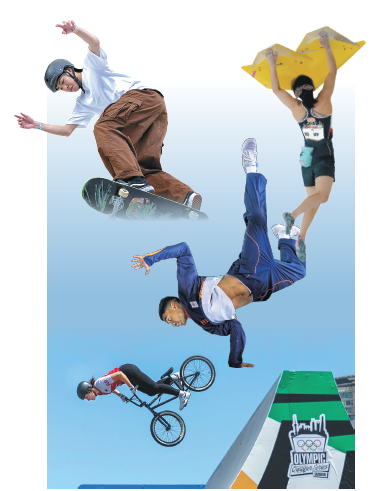
Among all of the international standouts, skateboarder Jagger Eaton of the United States set himself apart from the rest of the field by finishing on two podiums. He placed first in street and third in park on Sunday, despite the short turnaround between the two disciplines.
At the packed dance arena, tight battles laid down a marker of what to expect at breaking's Olympic debut in Paris, with Dutch B-boy Lee (Lee-Lou Demierre) and Japan's veteran B-girl Ayumi (Ayumi Fukushima) winning over the judges to win the men's and women's finals, respectively.
On top of four days of thrilling sports competition, Shanghai organizers also treated fans to daily music concerts, fashion shows and junior clinics for BMX and skateboarding.
The event even captured the attention of high-profile sports fans, with basketball legend Yao Ming, former track cycling Olympic champion Zhong Tianshi and ex-national soccer team captain Fan Zhiyi among the celebrities spotted at the meet.
"It's crazy to be skating at this kind of event. This is probably the biggest one we've had so far. I wasn't at the last Olympics, but ever since the day we got here, it's kind of been like (an) Olympic feeling," Brazilian skateboarder Luigi Cini said of his experience in Shanghai.
"If I didn't know any differently, I'd say that we're at the Olympics already. This is an unreal experience," Australian BMX rider Natalya Diehm said, echoing the sentiment.
Asked to score the performances of the Shanghai organizers, Bach gave a thumbs-up without hesitation.
"The question is easy to answer, 10 out of 10. I think there can be no doubt about this," he said. "It is not a coincidence that this world debut (of the OQS) is taking place in Shanghai, because we know China is a very reliable organizer."
"We know Shanghai is a place of innovation. We know Shanghai is a city that is open to the world, and we know the people of Shanghai are passionate about sport. So, therefore, it was somehow a no-brainer to decide where we would go first," Bach said of the selection of Shanghai as host of the inaugural OQS event.
"You can see it works, and that the younger generation has found new access to Olympic sports and to the Olympic values.
"This is the result of our Olympic Agenda reforms, which are promoting sports to be more urban, more youthful, more inclusive and more sustainable. And Shanghai is one step on this road."
This sentiment was backed by the figures provided by the organizers, who noted that 30 percent of the people who attended the event were under 18 years old. Additionally, organizers said, 89 percent of the 45,000 attendees were domestic spectators.
sunxiaochen@chinadaily.com.cn
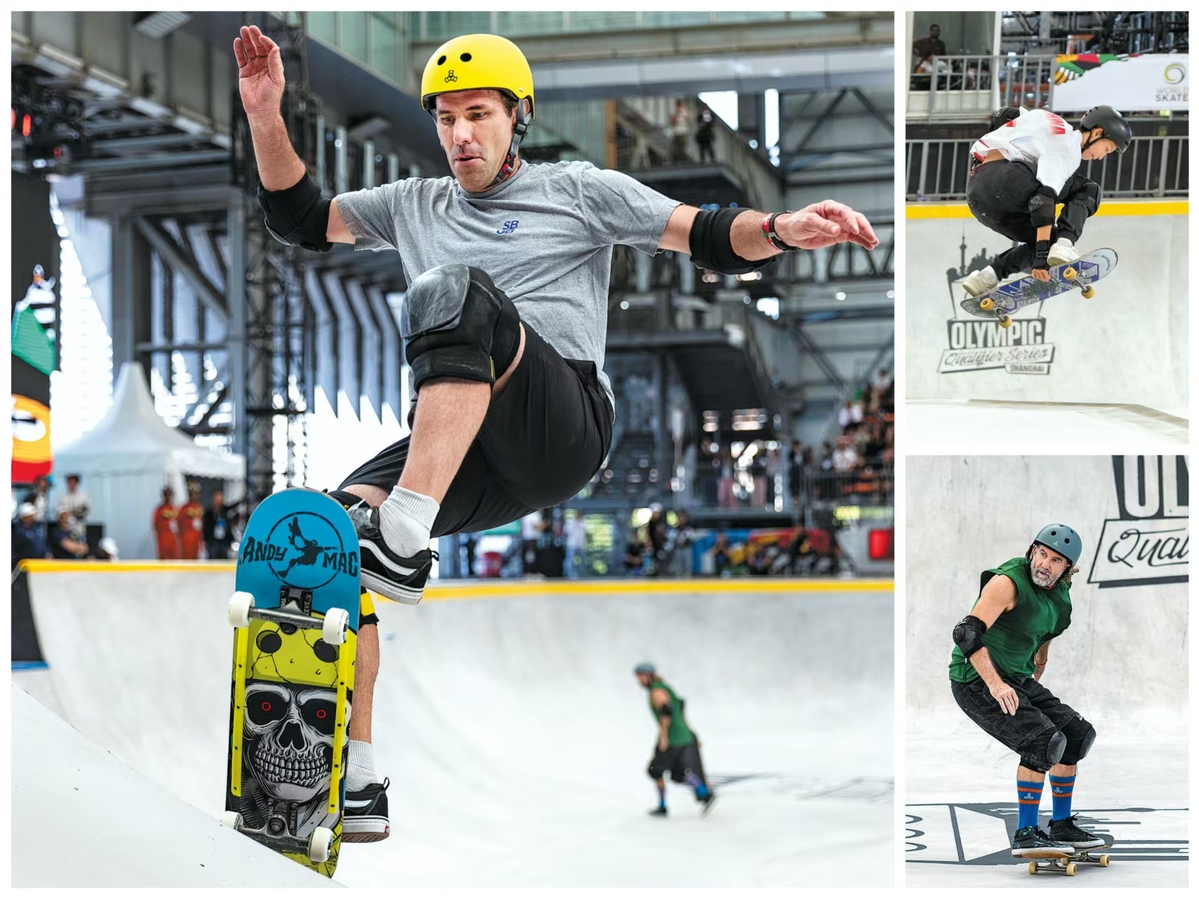
As China's 16-year-old skateboarder Chen Ye dropped in to get his final preliminary run going, a middle-aged man stopped at the edge of the hollowed-out concrete bowl, craned his neck and followed the teen's ride attentively.
Not a coach, nor a judge, the man wearing a yellow helmet turned out to be another competitor, who couldn't help but recall his own teenage years as a rider, more than three decades ago.
Soon to turn 51 and still competing, Andy Macdonald of Britain was the oldest in the field across all four sports at last week's Olympic Qualifier Series first leg in Shanghai, and he took pride in still competing for an Olympic berth against such a sophisticated group of teenagers in a sport where the fearlessness of youth seems to rule.
Whether he makes it to Paris or not, the old dog is still as excited about learning new tricks as he was when his sport had nothing to do with the Olympics at all.
"This is what I've been doing since I was 12 years old. That's what drives me, to try and learn new tricks and see the progression of it. Age is just a number," Macdonald told China Daily, after finishing three preliminary runs in the men's park qualifiers at the Huangpu Riverside venue in Shanghai on Friday.
"It's what gets me up every day. You don't get old and quit skateboarding, you quit skateboarding and get old. I just never stopped.
"It's like keeping my mental health and my physical health. If I am competing or not, I'd still be doing it anyway," said the legend, who was born in Massachusetts in the United States, but chose to represent his father's native Britain for a less-competitive Olympic trial.
"I love traveling, meeting new people, experiencing new things and getting to see the world, and that doesn't get old. So, if I can do it riding my skateboard for free, why should I stop?" said Macdonald, who missed the sport's Olympic debut in Tokyo.
Whole new trick
Riding for fun, and for a paycheck at commercial events, as Macdonald has been doing for decades, may never get old for him, but preparing for a serious global competition, such as the Olympics, takes the challenge to the next level — as highlighted by the jaw-dropping tricks and growing technical standards shown by younger riders, in their skateboarding prime, at the Shanghai meet.
Known as a master in vert skateboarding, also known as half-pipe, Macdonald, who's racked up 23 X-Games medals, mostly in that event, found the Olympic discipline of park skateboarding quite tricky, mostly due to the lower vertical drop-off at the edge of the bowl, as opposed to the much deeper descent of a pipe course, and the different judging criteria in execution, course use, flow and consistency.
He enjoys the challenge, anyway, even now that he's feeling the pull of gravity a little more.
"I'm, like, trying to learn a new discipline," said Macdonald.
"I can do the tricks on a big 14-foot ramp when I'm seven feet in the air, and, now it's like 'can you do them on a nine-foot ramp when you're only two feet in the air?' Everything just happens a lot faster (riding a bowl), and I don't move as fast as I used to," he said.
To try and fail, but fail better, Macdonald, who finished the prelims 30th overall, is not there alone.
South Africa's Dallas Oberholzer, 48, and Rune Glifberg of Denmark, 49, were also in Shanghai attempting to secure a berth for Paris 2024 after both having competed at Tokyo 2020.
The trio of Gen X-ers, who defined skateboarding alongside the great Tony Hawk, all failed to make it to the semis in Shanghai, and will likely not get to ride in Paris due to not being placed high enough in the Olympic World Skateboarding Ranking.
Even with a final qualifying event to go, in Budapest from June 20-23, to make the top-20 cut on the ranking by the June 24 deadline seems a tall order.
As long as they feel fresh on the journey, it doesn't matter where it ends, said Oberholzer, who fell during all three prelim runs on Friday, but drew loud cheers from the Shanghai crowd every time he climbed up.
"I learned a new trick in this park yesterday," Oberholzer said. "That's what skating is all about — progressing — and that's what keeps me young and keeps me wanting to skateboard. There's no real sense of needing to give up if I'm still learning tricks."
Future on 'the right path'
With the next generation of riders now exposed to serious training earlier, and the sport promoted to a wider audience thanks to its Olympic inclusion, Macdonald believes skateboarding is riding down the right path.
And that's despite some die-hard dissenters voicing their opposition to the rigorous regime brought by the Olympics.
"I think that people were afraid that it would change the sport's mentality," said Macdonald, who personally welcomes the culture shift.
"Yes, the Olympics are going to make skateboarders take it more seriously and get coaches and trainers, whereas 20 years ago, when I was pro, you weren't allowed to say the word 'train'.
"Then, slowly people started taking it seriously and realizing that 'if I want to get better, if I want to do well in competition, I need to train'.
"There are still skateboarders today who couldn't care less about the Olympics. They're just like 'oh, we're going to hop a fence and scale the backyard pool', to them, that's skateboarding, and you can never take that away. But, my opinion is that you can have both."
Riding on the Olympic momentum, the street sport's popularity is taking off in China, evidenced by the bustling scenes of toddlers trying mini ramps at the dockland park in Shanghai during the qualifier and looking up to teen star Chen, who won the Asian Games title last year at just 15 years old.
"It's so cool to see," said Macdonald. "Not only are kids getting into it, but internationally, because of the Olympics, there are more places where it's more accessible all over the world. There are more places for kids to get involved in these sports than ever before."

Sunshine, exuberance, great athleticism. The Olympic Qualifying Series Shanghai kicked off in grand style on Thursday at the Huangpu Riverside, with enthusiastic spectators swarming into the venue to experience the festival-style event.
Competitions for skateboarding street, skateboarding park and boulder climbing started with the preliminary rounds on the first day of the event, which ends on Sunday. The four-day series has attracted 464 top athletes to compete in BMX freestyle, breaking, skateboarding and sport climbing, vying for berths at this year's Olympic Games in Paris.
"I think the atmosphere and competition venue at the event exceeded my expectations. There were even more spectators than at the Asian Games," said 17-year-old Zhang Jie, the only Chinese street skateboarder in the event and the gold medalist in men's street skateboarding at the Asian Games in Hangzhou last year.
Shanghai organizers transformed the Huangpu Riverside venue, which hosted the 2010 World Expo, into an urban park spanning 110,000 square meters for sports competitions and associated cultural and entertainment events.
"The event is amazing, just incredible to be able to see all the other events. And the venue is really nice. I'm looking forward to the lead event," said Alex Khazanov, a sport-climbing athlete from Israel.
B-Boy Karam Singh from Great Britain said: "It's amazing to be around so many incredible athletes from different sports. There are a lot of similarities between the four and the journeys that we've been on, so it's nice to see the athletes from across sports and countries connecting with each other.
What makes the inaugural edition of the Olympic Qualifying Series special is the combination of an urban festival that integrates sports, music, art and culture with the hard-core sports competitions.
"The event has a great vibe and it reminds me a little bit of the festival vibe. You see all the athletes skating between everyone, so I really enjoyed that," said Karina Bes from the Netherlands. Bes visited the urban festival with her daughter, who is a keen skateboarder.
Compared with other sports events, Bes added that the series offers more varied experiences. "I would have expected it to be way more crowded, but it's cool," she said. "There is enough space, enough things to eat and drink. Lots of fun things around."
Five "experience zones" including a pop art-inspired climbing zone, origami-style skateboarding zone, hip-hop graffiti-themed breaking zone and an industrial woodland BMX zone, have opened inside the urban park.
"I think the atmosphere of the series is stronger than that of the Olympic Games because of the urban festival," said Zhong Tianshi, China's two-time Olympic track cycling champion. "In the Olympic Games, people just watch the competitions, but at this sports festival, people can participate in and experience these sports. I think it brings more anticipation to this competition."
Hosting the qualifier series in an Olympic year injects new impetus and advantages into Shanghai's efforts to accelerate its development as a globally renowned sports city and enhance the soft power of its urban culture.
"I feel impressed by the energy of the city," said Pierre Fratter-Bardy, the International Olympic Committee's associate director of Olympic Games strategy and development. "The venue is extraordinary and has an exceptional setup. We are very thankful to the city of Shanghai regarding the quality."
Besides the competitions, the event also provides athletes with an opportunity to explore the city.
"This is my first time in Shanghai. Super impressed by the city. It is completely out of the world I'm used to — all the skyscrapers and the city is huge," said Sandra Hopfensitz, a boulderer and lead combined contestant from Germany.
Grace Marhoefer and Rudy Lilley, both park skateboarders from the US, were also impressed.
"We've gotten to negotiate a lot of places and meet a lot of cool people. I'm just grateful to be here and experience everything," Marhoefer said.
Lilley added: "I'm really happy to be here. I love it and I love the food and people. It's been amazing."
The second stop of the series is scheduled to be held in the Hungarian capital Budapest from June 20 to 23, with 150 spots at this summer's Paris Olympics to be filled after the two stops.
Luo Bin and Li Junfeng contributed to this story.

Pierre Fratter-Bardy, the associate director of the International Olympic Committee's Olympic Games Strategy & Development team, lauded Shanghai as an international sports hub during a news conference on Wednesday ahead of upcoming Olympic Qualifier Series (OQS).
The four-day event starting on May 16, featuring a thrilling lineup of BMX freestyle, skateboarding, breaking, and sport climbing competitions along the Huangpu Riverside, is set to bring a fusion of sports and culture to the vibrant metropolis.
Fratter-Bardy expressed confidence in Shanghai's ability to deliver a world-class event, citing the city's rich history of hosting major sporting events and its energetic atmosphere as key factors in its selection as the location for the inaugural ground breaking series.
The event, split into two parts with Shanghai as the first stop and Budapest as the next destination, is designed to be compact and urban, with preliminaries on Thursday and Friday, leading up to the finals over the weekend.
Fratter-Bardy noted that the OQS is not just a competition but a celebration of sports, music, and fashion, offering attendees a unique festival-like experience.
"The event's innovative approach, blending sports with culture and entertainment, reflects the evolving landscape of the Olympic Games and society at large," he said.
With a capacity for 15,000 spectators in the urban park, organizers anticipate a bustling atmosphere throughout the event which will feature a spectacular lineup of performances, including dance shows, fashion shows and concerts celebrating Chinese culture to providing an immersive experience for attendees.
On Wednesday night, an opening ceremony for the OQS was held to welcome global athletes and guests.
"The Olympic Qualifier series serves as a crucial stage leading to the Olympics, and it is also a public festival where sports events blend with urban culture," said Gong Zheng, mayor of Shanghai. "Shanghai is a city where East and West converge, and where culture and modernity intertwine. The host venue, the Huangpu Riverside, which was one section of the Shanghai World Expo site, embodies this duality, steeped in rich history yet exuding youthful vigor."
Hosting the qualifier series in an Olympic year injects new impetus and advantages into Shanghai's efforts to accelerate the development toward a globally renowned sports city and enhance its soft power of urban culture, Gong noted.
Luo Bin contributed to the story.

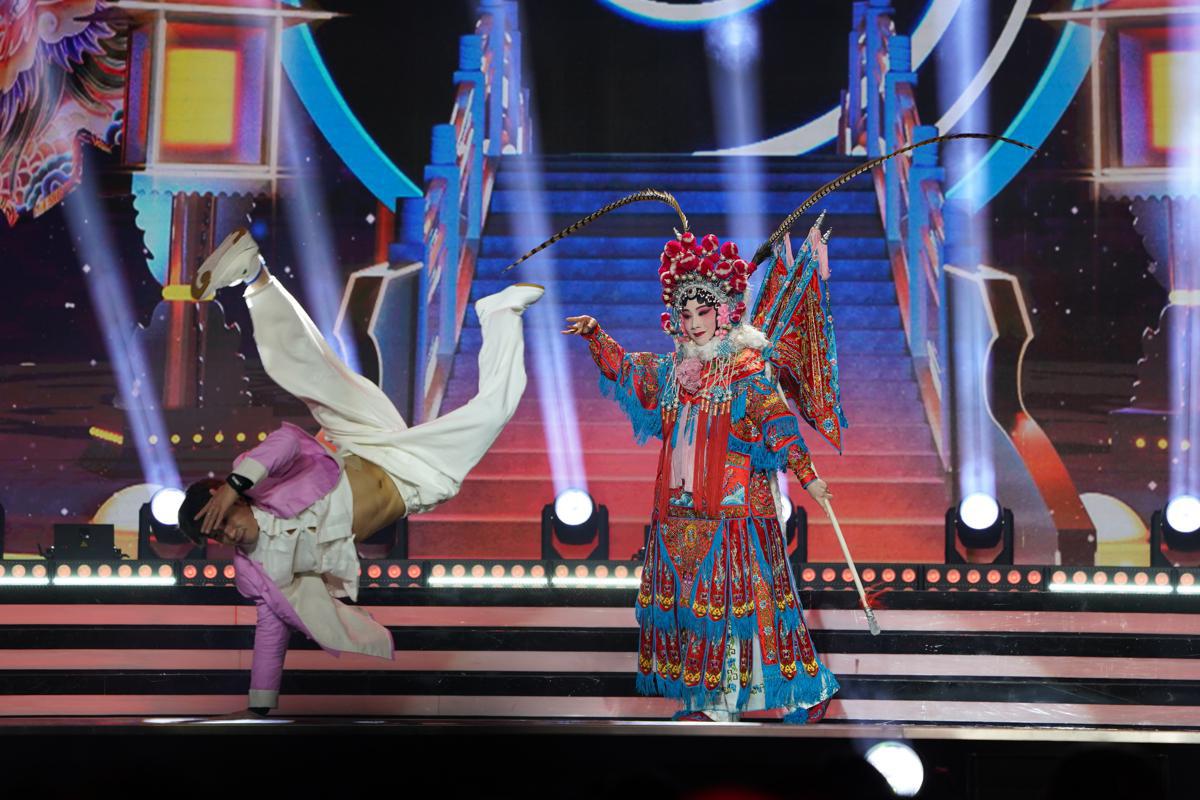

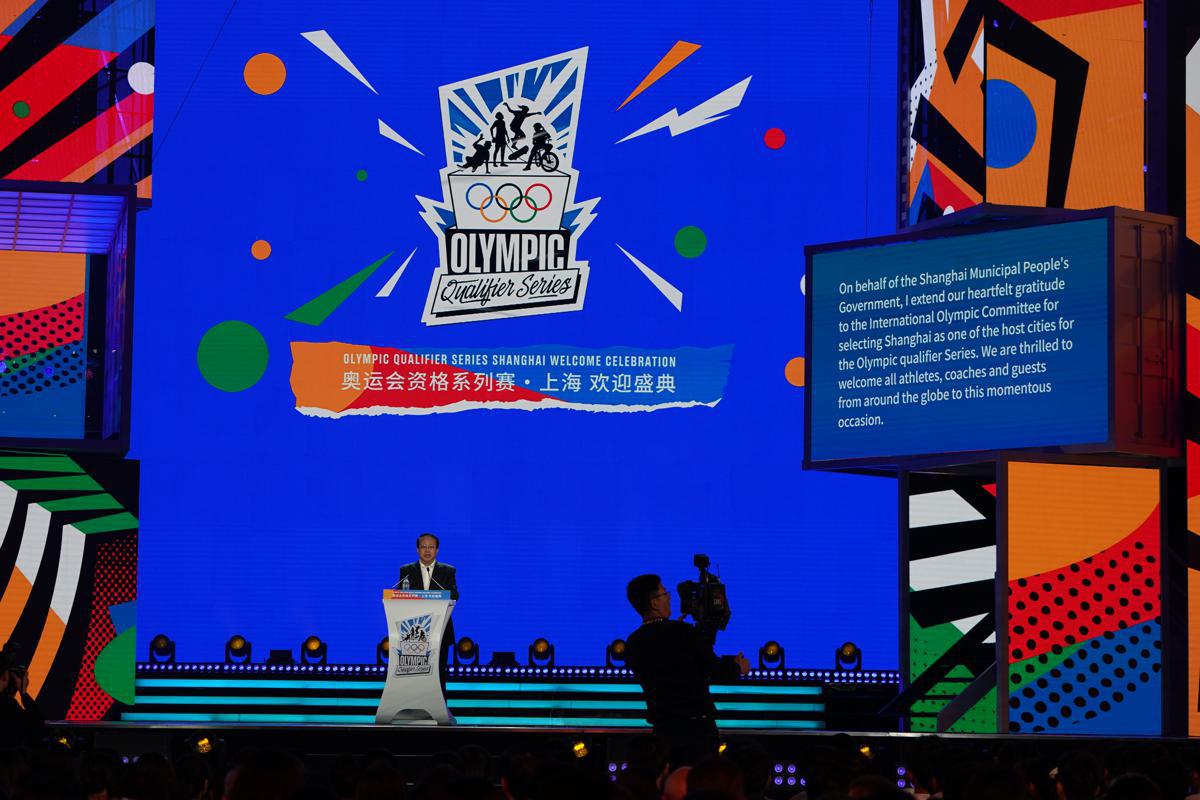
All preliminary preparations for the Olympic Qualifier Series (OQS), scheduled from May 16 to 19 at the Huangpu Riverside in Shanghai, have?been completed.
Transforming the riverside venue into an urban park spanning 110,000 square meters, with 6,000 square meters dedicated solely to competition areas, the event?is set?to host the best athletes from four disciplines - BMX freestyle, breaking, skateboarding, and sports climbing- vie for their tickets to the Paris Olympics.
The design of each venue has been coordinated with the International Olympic Committee, forming a bold color palette dominated by Olympic hues and white, adorned with youthful graphics.
Skateboarding, divided into street and park categories, showcases a dynamic and urban vibe with graffiti and colorful murals integrated into the course design, while?the BMX Freestyle arena, designed by French Pascal Morrasse-Raymond, aims to establish a world-class field in Shanghai.
Breaking, with its distinctive red and blue entry portals, adds a special touch to competitors' entrances, and sport climbing, with its speed and bouldering events, is likely to draw huge audiences thanks to Shanghai's continuous efforts on promoting the sport domestically.
Shanghai will showcase four all-action sports, as the inaugural Olympic Qualifier Series kicks off on Thursday. The four-day event will thrill fans with a combination of adrenaline-pumping competition, culture, art and music. The series will conclude with a final leg in Budapest in June to decide the final points tally — and who gets a golden ticket to Paris, Sun Xiaochen reports.

A fun pastime and trendy commuting choice almost everywhere around the world, skateboarding's popularity has exploded in Asia since its Olympic debut at Tokyo 2020, with millions of participants and fans drawn to the awe-inspiring ability of athletes in the discipline to flip, spin and grind across ramps, rails and courses in both street and park settings, and at high-level competitions.
The Olympic qualifier in Shanghai will bring the world's finest skateboarders to one of China's most dynamic, fashion-conscious and international urban audiences. They will undoubtedly be "oohed" and "aahed" by the city's cool kids, who will surely gather in their droves to watch the skaters show off their slickest of tricks.
Unlike other events, where some of the quota of Olympic places for Paris 2024 will be directly up for grabs at the qualifiers, the total 80 places for skateboarding will be decided by the Olympic World Skateboarding Ranking by June 24, with performances at the Shanghai and Budapest qualifiers contributing heavily to the final rankings.
The street discipline will see a close battle in Shanghai, with a noticeable power shift reshaping the sport's landscape since qualification began in 2022.
Men's reigning world champion Aurelien Giraud of France and Japanese star Shirai Sora, who both had disappointing campaigns at Tokyo 2020, have come back with a vengeance, while newcomers such as Oda Yumeka, Japan's defending women's world champion, and Australian prodigy Chloe Covell are primed to make their presence felt in Shanghai.
Led by teen sensations Cui Chenxi (15) and Zeng Wenhui (19), the host is preparing a competitive women's street team of five riders to vie with their more accomplished international rivals for the points that will get them to Paris.
In the other three events — women's park and men's street and park — Chinese riders remain far from world class, as they embrace this home qualifier as a learning curve for the future.
Format: freestyle: street, park
Number of athletes: 176

As the newest Olympic sport, and one where art meets athleticism, breaking involves athletes — known as b-boys and b-girls — flipping, spinning and pulling out body-bending gymnastic moves to the beat of hiphop music in one-on-one dance battles.
A judging panel scores the dancers' routines for technique, trick execution, style, originality and, more importantly, synchronization with the soundtrack.
The qualifier series' Shanghai leg will witness a fierce battle for historic entries to Paris, where breaking will take place as an official medal event for the first time since being demonstrated at the 2018 Youth Olympics.
Current men's world No 1 b-boy Kim Heon-woo of South Korea will be one of the biggest stars to watch in Shanghai, alongside Japanese pair Isshin Hishikawa and Hiroto Ono, who are both vying for the one spot left for Japan, with their compatriot Nakarai Shigeyuki already qualifying by winning gold at last year's Hangzhou Asian Games.
On the women's side, Japan's 2021 world champion Ayumi Fukushima, who will be 41 by the time the Paris Games roll around, will battle it out with her compatriots, current world No 1 Ami Yuasa and No 4 Riko Tsuhako, for one of the Japanese places available. Each National Olympic Committee gets two.
As an emerging force in breaking, Chinese dancers, especially b-girls, have gradually made names for themselves on the center stage, with world elite star Liu Qingyi (b-girl 671) having already snatched up an Olympic ticket as Asian Games winner. Her fellow countrywomen Zeng Yingying and Zheng Ziyan will join the Shanghai showcase to measure themselves up against the world's best.
A three-month winter training program has helped prepare Chinese breakers to be 100 percent ready, physically and mentally, for the home qualifier, according to Yin Guochen, president of China Dancesport Federation.
Team captain Shang Xiaoyu, aka b-boy X-Rain, is embracing the qualifier as an invaluable tuneup for him to reach his goals in Paris.
"With many rounds to go at the qualifier series, it will be a great test of our stamina, technique and mental strength. I will try to open the series in Shanghai with flying colors and clinch a ticket to Paris," said the 2018 Youth Olympian.
Formats: B-Boy, B-Girl
Total quota of available spots: 14
Number of athletes: 80

The sheer embodiment of strength, agility and courage, sport climbing has been gaining traction in recent years, not just among extreme outdoor lovers, but also urban fitness enthusiasts, thanks to its Olympic inclusion.
The Paris Games will double the medals on offer for both the men and women by crowning one champion in boulder and lead combined, and awarding another medal in the speed discipline, unlike at the sport's Olympic debut in Tokyo, where only men's and women's all-around champions were crowned after competing in all three disciplines.
The separation of the speed event from the other two, more technical, disciplines suits China's Olympic ambition well, with most of the country's top climbers excelling in the speed race, where athletes scale a 15-meter-high wall against the clock in one-on-one elimination rounds.
"Speed being isolated as a medal event on its own was good news for us, because this is where we traditionally excel, especially on the men's side," said Wang Yunlong, manager of China's sport climbing team, after a recent training session.
Already having three athletes — Long Jinbao and Deng Lijuan in speed and Zhang Yuetong in boulder and lead combined — securing direct Olympic berths via last year's world championships and continental qualification events, Team China is going all out trying to rack up enough points at the series' home leg in Shanghai, and at the final stop in Budapest next month, to earn full qualification quotas in speed — two women and two men — and at least three in the combined discipline, according to Wang.
International climbers, such as former men's world record holder Veddriq Leonardo of Indonesia, and his female compatriot, Rajiah Sallsabillah, 2023 Asian Games bronze medalist, are expected to challenge the host's best in the speed event.
In boulder and lead combined, where athletes jump, pull and swing their way up nearly impossible-to-fathom overhangs, world-class masters, including reigning men's Olympic champion Alberto Gines Lopez of Spain and women's Olympic silver medalist Miho Nonaka of Japan, have all signed up to the Shanghai leg with an eye on stamping their Olympic tickets.
Formats: boulder & lead, speed
Total quota of available spots: 30
Number of athletes: 160

It's safe to say that a BMX freestyle run offers the most action per minute at the Olympic Games — it's 60 seconds packed with wheel spins, flips, tail whips and riders flying across ramps, jumps, and more.
And it's even safer to say that the Huangpu Riverside provides one of the world's most ideal stages for competing in, and enjoying, the extreme sport, known as BMX — short for "bicycle motocross".
Built against the backdrop of an iconic cityscape and close to an urban audience, The Shanghai park provides all the jumps, ramps and rails, and the optimal conditions, to compete.
A total of 48 freestyle riders, 24 women and 24 men, will be contesting for 12 direct Olympic qualification spots — six on each side — for Paris, where the adrenaline-pumping competition will take place in front of a live audience at the Games for the first time.
Defending men's and women's Olympic champions, Australia's Logan Martin and Britain's Charlotte Worthington, as well as Tokyo 2020 men's runner-up Daniel Dhers of Venezuela, United States' five-time world champion Hannah Roberts and Tokyo 2020 women's bronze medalist Nikita Ducarroz of Switzerland, are among the glittering list of riders to descend on Shanghai.
Although having not nurtured mature enough riders to make to the Olympic qualifiers, China's emerging freestyle BMX community is stoked for an opportunity to get close-up to, and learn from, the world's best at home, said Shen Jian, an eight-time Chinese BMX national championship winner.
Format: freestyle
Total quota of available spots: 12
Number of athletes: 48
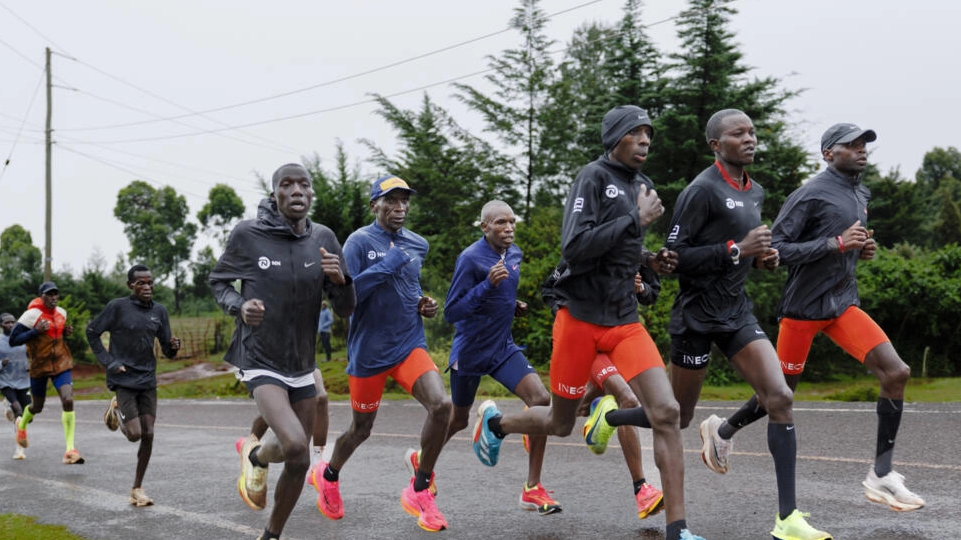
KAPTAGAT, Kenya — Daily training, frugal living, shared household chores: The Kaptagat camp, where Kenyan athletics stars Eliud Kipchoge and Faith Kipyegon are preparing for the Paris Games, is a protected retreat, known for its focus on self-discipline.
This small complex in Kenya's Rift Valley, perched at an altitude of 2,500 meters between forests and corn plantations, was founded in 2002 by former runner-turned-coach Patrick Sang and the Dutch athlete management agency, Global Sports Communication.
"The idea was to help young athletes develop their potential, because, here in Kenya, many don't have access to training facilities or to the support of a coach," Sang said.
"It is a place where elite athletes mentor younger ones, a place run by athletes that also became a school of life."
Its most famous resident — who has been training there since its establishment — is athletics legend Kipchoge.
"This is the calmest place ever. It's a good place to concentrate. We live a simple life," the two-time Olympic marathon champion explained.
This is where the 39-year-old laid the groundwork for his greatest exploits, including his 2018 and 2022 world records and his two Olympic titles, to which he hopes to add a historic third gold medal come August.
In 2019 Kenyan middle-distance champion Kipyegon, who is also aiming for an unprecedented hat-trick in Paris in the 1,500 meters, started attending the camp.
"This place really changed my life and my career," the 30-year-old said, adding: "It's our second home. We train and live as a team. We are focused 100 percent on running."
Everyone contributes
But it's not all about athletics all the time.
All the athletes live at the camp from Monday afternoon to Saturday morning.
During that time, they are expected to contribute to the running of the camp by doing household chores, including cooking once a week, cleaning the TV room and lavatories, and taking out the trash.
Far from the hi-tech training grounds in the United States, the Kaptagat camp offers minimal home comforts.
For nearly 15 years, athletes got their water from a well.
In recent years, running water and solar panels have been installed.
A few single rooms have been added to the double rooms — the only concession to the elite status of certain runners at a facility which wears its egalitarian credentials with pride.
In Kaptagat, "there is no world champion, no record holder — all of us are equal," said marathon runner Laban Korir, who is designated "president" by his peers, and coordinates the various committees which run the camp.
Here, even world champions reveal hidden talents: residents told reporters that Kipyegon prepares the best chapati (flatbread) in the camp.
Grueling regimen
Far from their families, the athletes devote themselves to their training, which follows a common program: for four days a week, they run 16 to 20 kilometers in the morning and 10 km in the evening. Then, there's a weekly "long run" of 30 to 40 km, and gym sessions twice a week.
While entry to the camp is strictly limited, local runners join training runs on surrounding roads, hoping to be spotted and recruited.
After their training, athletes can get a massage, grab a book from the camp library, where the eclectic selection ranges from A Promised Land by Barack Obama, Midnight Express by Billy Hayes and Meditations by Marcus Aurelius to Running a Marathon for Dummies.
Distractions are few and far between.
The use of the telephone is prohibited in the dining room and during massages.
Instead, residents sit in the garden and chat over cups of sweetened milk tea.
"We talk about the prevailing situations in our country, like politics, and also soccer," said Victor Chumo, who has been training in Kaptagat since 2019.
"Here, we live like a family. We have different generations," long-distance runner Daniel Mateiko, 25, said.
"We learn from our mentors, we help each other and train with one goal: achieving our dreams."
AFP

MARSEILLE - The Olympic flame arrived in France at Marseille on Wednesday on board a 19th century ship in front of 150,000 spectators for a ceremony that posed a first major security test for organisers of the 2024 Paris Games.
The flame was brought to the southern French port from Greece on the three-masted Belem, 79 days before the Olympics begin.
As the ship entered Marseille's Old Port with hundreds of small boats trailing behind, planes from the Patrouille de France display team traced the Olympic rings in the sky before they returned to paint the red, white and blue of the French flag.
Fireworks tore into the sky as the Belem docked after its 12-day voyage from Greece, where the flame was lit in ancient Olympia on April 16.
Olympic gold medal-winning swimmer Florent Manaudou carried the torch from the deck of the ship.
Manaudou passed it to Paralympic champion sprinter Nantenin Keita, who handed the torch to French rapper Jul to light a cauldron.
The arrival of the flame marks the start of a 12,000-kilometre (7,500-mile) torch relay across France and its far-flung overseas territories.
Organisers are hoping the first public spectacle of the Games on French soil will help build excitement after a row about the price of Olympics tickets and concerns about security.
President Emmanuel Macron praised the "unprecedented effort" of the security forces in Marseille and said after watching the flame arrive that he hoped the Olympics would bring France together.
"I want our compatriots to imagine that this is a moment of unity and that we are capable of it and that we can be proud of it," Macron said.
The chief organiser of the Paris Olympics and Paralympics, Tony Estanguet, said this week "the Games are coming home".
France, which last hosted the Olympics a century ago, sees itself at the heart of the modern Olympic movement after a French aristocrat, Pierre de Coubertin, revived the idea of the Games as practised by the Greeks until the 4th century BC.
After the Covid-hit edition in Tokyo in 2021 and the corruption-tainted Rio de Janeiro Games in 2016, the Paris Olympics are seen as an important moment for the sporting extravaganza.
High security
In the background in Marseille, around 6,000 security forces are on duty at a time when the country is on its highest terror alert.
The torch relay will begin for real in Marseille on Thursday when Ivory Coast football great Didier Drogba, a former player for Marseille, will be one of the bearers.
Extremely tight security will be a constant feature as the torch travels through more than 450 French towns and cities, and passes by dozens of tourist attractions including the Mont Saint Michel. It will also visit overseas destinations including Guadeloupe, New Caledonia and Reunion.
Around 200 members of the security forces are set to be positioned permanently around the torch, including an anti-terror SWAT team and anti-drone operatives.
Interior Minister Gerald Darmanin has referred to the risk of protests, including from far-left groups or environmental activists such as Extinction Rebellion.
Organisers have promised a "spectacular" and "iconic" Olympics and Paralympics, with much of the sport set to take place in temporary venues around the City of Light including at the Eiffel Tower and the Invalides.
The opening ceremony for the Olympics on July 26 will take place in boats on the river Seine in a radical departure from past Games which have opened in the main stadium.
However President Macron said last month the opening ceremony could move if the security risk is too high.
All of the major infrastructure has been completed with only two new permanent sporting venues built in a bid to reduce the financial cost and carbon emissions of the global extravaganza.
The idea of the torch rally harks back to the ancient Olympics when a sacred flame burned throughout the Games.
The Paris Olympics will run from July 26-August 11, followed by the Paralympics from August 28-September 8.
AFP

PARIS - With the Olympic flame set to arrive in Marseille in two days' time, organizers of the 2024 Paris Olympic and Paralympic Games on Monday revealed the design of the torch relay cauldron.
Just like the torch, the cauldron was created by Mathieu Lehanneur and manufactured by ArcelorMittal, drawing on the inspirations and signature features of the torch: the purity of form, color and texture of water.
It has been produced in a limited batch of 20 units. Each cauldron features a ring at the top with a diameter of 1.35 meters and is equally wide at the base. The cauldron stands 1.15 meters tall, making it accessible for wheelchair users. It weighs 95 kilograms, with the ring made of stainless steel and the base crafted from aluminium.
The cauldron also has the same luminous hue as the torch, a combination of gold, silver and bronze, with a shiny finish on the lower parts and a matt finish on the upper parts.
"The torch, the torch relay cauldron and the Olympic cauldron are not separate objects. They are chapters in one great story. Each embodies the spirit of the Paris Games. The cauldron takes the form of a ring of fire suspended above a liquid surface. Both pure and magical, it seems to float and is reflected in its metallic base. If the torch is a sacred fire that is passed on, the cauldron is the object around which we gather and which unites our energies," said Lehanneur.
From the crossing of the Mediterranean Sea to the Seine, the stage of the opening ceremony of the Olympic Games and the competition venue, via the Oceans relay, the central role of water in the torch relay and the Games of Paris 2024 is symbolized both on the torch and on the base of the cauldron with wave and ripple effects.
At each stopover city during the relay in France, the last torchbearer of the day will light the cauldron at the celebration venue, bringing the festivities to a climax.
"The lighting of the cauldron by the last torchbearer of the day will be a highlight. In each stopover city, the cauldron will be a real meeting point to round off these days of celebration and communion in style," said Paris 2024 president Tony Estanguet.
At previous editions of the Olympic and Paralympic torch relays, a torch was traditionally offered to each torchbearer as a souvenir. Although the number of torches produced (2,000) has been divided by five compared with previous editions of the torch relay, Paris 2024 still prepared a gift to the 11,000 torchbearers: the Heart of the Torch, which is a gold ring from the torch.
The ring joins the upper and lower parts in the middle of the torch. The gold-colored ring is also produced by ArcelorMittal, using steel made entirely in France and engraved with the words "PORTEUR DE LA FLAMME", "ECLAIREUR DES JEUX" and "PARIS 2024".
The Heart of the Torch measures 10 centimeters in diameter and 2 millimeters in thickness, weighing 65 grams.

GENEVA - The International Olympic Committee announced Monday that the 2024 Paris Olympic and Paralympic Games will provide immersive and interactive on-site experiences with the help of AI-driven technologies.
Ilario Corna, IOC's Chief Information Technology Officer, said in an IOC statement, "Our partnership with Intel has propelled us into a realm where emerging technologies, powered by artificial intelligence, are reshaping the world of sport for spectators, athletes, IOC staff and Partners.
Through their AI-powered solutions, Intel has enabled us to deploy AI faster than ever before. Together, in Paris, our collaboration will create an Olympic experience like never before, embodying our shared commitment to building a better world through sport."
Audience will be able to enjoy 8k livestreaming broadcast for the first time at the Olympic Games in Paris this summer.
Other technologies will also create a journey of becoming an Olympic athlete to give the fans an experience of interactive, AI-powered activations, the IOC said.
The AI technology also transforms video footage of artefacts in the Olympic collections into 3D digital models, which is aiming to preserve the legacy of the Olympic Games.
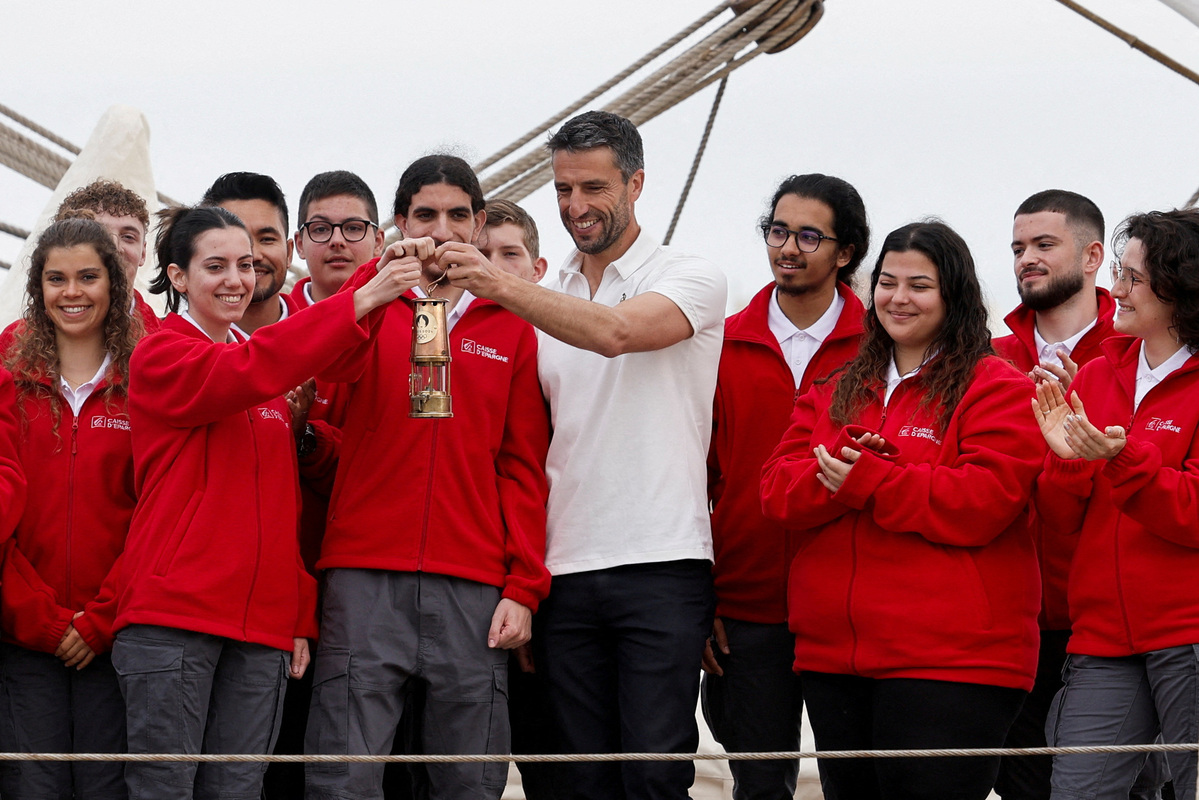
ATHENS - The Olympic Flame burning for the Paris 2024 Summer Games was handed over on Friday to the French organizers in a ceremony held at the Panathenaic stadium in Athens.
At the marble venue of the first modern Olympics of 1896, Hellenic Olympic Committee President and International Olympic Committee (IOC) member Spyros Capralos passed the flame to Tony Estanguet, president of the organizing committee of the Olympic and Paralympic Games "Paris 2024".
"Once again the Olympic Flame will spread across the world the Olympic ideals...It reminds us values such as solidarity and peace," Capralos said, addressing the event.
The French delegation left the stadium with Greek hosts' best wishes for successful Games. The Paris 2024 Summer Olympics will be held from July 26 to August 11.
Greek and French officials, IOC members, other dignitaries and thousands of cheering spectators attended Friday's event which marked the end of the torch relay on Greek soil.
The Olympic Flame's journey started on April 16 from Ancient Olympia in western Greece, the birthplace of the Games 2,800 years ago. The flame was lit in a traditional ceremony next to the ancient stadium at where athletes competed for first time in antiquity.
Greek race walking world champion Antigoni Drisbiotis was the first torchbearer to bring the Flame to the Panathenaic Stadium on Friday.
The last torchbearer on Greek soil was Ioannis Fountoulis, captain of Greece's national polo team which won the silver medal at the Tokyo Olympic Games. Fountoulis was escorted by his teammates as he lit the cauldron.

After a choreography by dancers and actors in the roles of Ancient Greek priestesses and male youth, Greek actress Mary Mina acting as an ancient Greek High Priestess, lit a torch from the cauldron.
She passed it to Capralos who then handed the Flame to Estanguet.
"Thank you. See you in Marseille in May 8th," Estanguet said speaking in Greek.
At the end of the ceremony, the flame was transported to Piraeus port to head for the port of Marseille on board Belem, a three-masted vessel that was launched in 1896. Belem was scheduled to depart on Saturday for France for the second part of the relay that will end in Paris for the opening ceremony of July 26.

PARIS — As the countdown clock to the Paris Olympics passed the 100-day mark, questions over holding the opening ceremony on the Seine River loomed large over the milestone celebrations on Wednesday.
Organizers have planned a parade of about 10,500 athletes through the heart of the French capital on boats down a 6-kilometer (3.7-mile) route along the Seine during the opening ceremony at sunset on July 26.
But, French President Emmanuel Macron said on Monday that the exceptional open-air event in central Paris could be shifted to a more conventional opening ceremony at the Stade de France if the security threat is deemed too high.
"If we think there are risks, depending on our analysis and the context, we have fallback scenarios. There is a plan B and a plan C," Macron said.
France is on high security alert ahead of the Paris Olympics and Paralympics, which are expected to draw millions of visitors to the country. Organizers, French government officials and French athletes at the J-100 ("100 Days To Go" Olympic event) on Wednesday all acknowledged security concerns over the opening ceremony, which will bring huge crowds, and over 100 world leaders, to the river's embankments.
They insisted that preparations for the parade on the Seine are still in full swing and are set to go ahead as planned.
"We are working heavily on Plan A, which remains the central scenario, and the very, very dominant scenario," France's Sports Minister Amelie Oudea-Castera said.
She added, enthusiastically and with a large smile: "We keep working on that fantastic ceremony on the River Seine."
The sports minister emphasized that visitors to Paris will be safe during the Olympics.
"We know that risks exist," Oudea-Castera said. "We know the world is complex, sometimes unstable, sometimes unpredictable, sometimes dangerous," she said, before insisting: "We really want to say to the whole world that, in any case, France will be a safe place."
Tony Estanguet, the head of the Paris Games' organizing committee, said the plan to open the Games with the sunset parade on the Seine remains unchanged, adding "it's our duty, our role, to make sure it will happen".
However, there are, as yet unspecified, contingency plans in place, whereby organizers will adapt to any circumstances that might arise, Estanguet added.
David Lappartient, president of the French National Olympic and Sports Committee, accepted there are challenges in preparing an event like the Olympics in a city like Paris at a time of heightened global tensions.
"The situation worldwide is quite complicated," said Lappartient, who is also an International Olympic Committee member. There are challenges with transport and security, and it's reasonable and reassuring that the "government is trying to see all the options on the table."
Former France handball star Michael Guigou, who won multiple Olympic and world titles, said security risks have become part of daily life in France, such as when he goes to a concert, but added that he has full trust in security arrangements at the opening ceremony — wherever it may take place — and in fan zones, Olympic venues and the city of Paris itself.
"It's part of life today, unfortunately," Guigou said. "We have enough intelligent and competent people in place to look after that, so I'm not doubting things."
Dany Dann, a French breaker who will take part in his first Games when breaking makes its Olympic debut in Paris, has no concerns.
He is only anxious to get started, on the Seine, at the Stade de France — or anywhere else in Paris.
"I just want to live the Games," Dann said. "We know that if it's moved left or right, things will be organized so that everything's fine. I am just concentrating on my own preparations."
Agencies via Xinhua
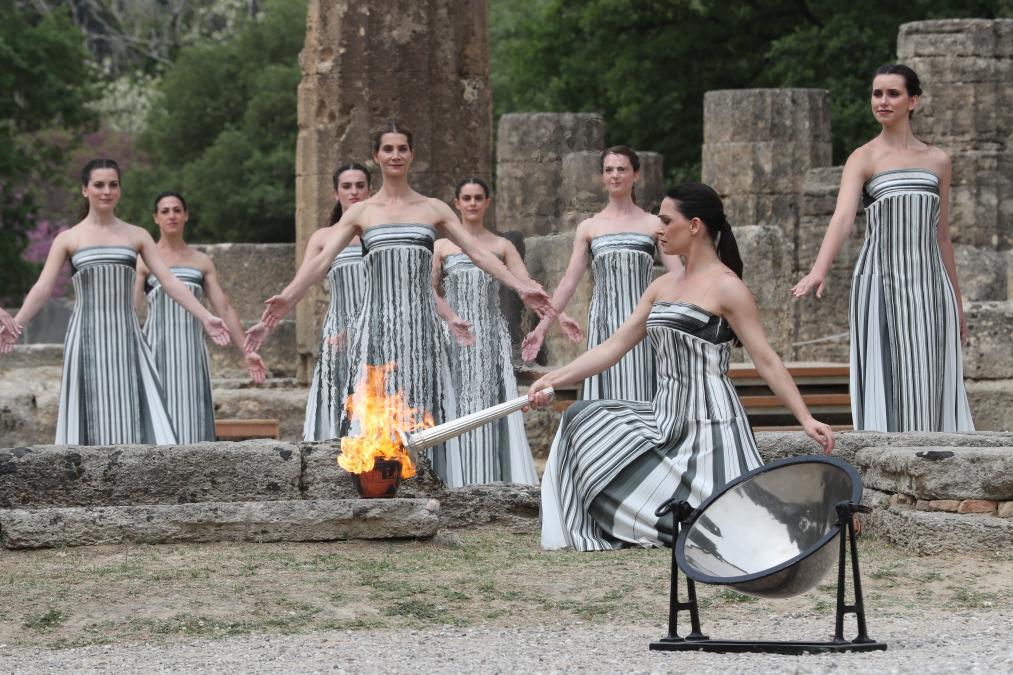
ANCIENT OLYMPIA, Greece -- The Olympic flame that will be burning for the Paris 2024 Olympic Games started its journey after being ignited at the birthplace of the Games in Ancient Olympia, Greece on Tuesday during a traditional ceremony.
Actress Mary Mina, in the role of an ancient Greek High Priestess, lit the torch using a backup flame instead of a concave mirror due to cloudy skies before the 2,500-year-old Temple of Hera, a goddess in ancient Greek mythology.
Escorted by dozens of female and male dancers playing the roles of priestesses and male youth in pleated costumes, the flame was transported in a replica of an ancient urn to the stadium where the Olympic Games were born, under the rhythm of an ancient Greek type Lyra and percussions.
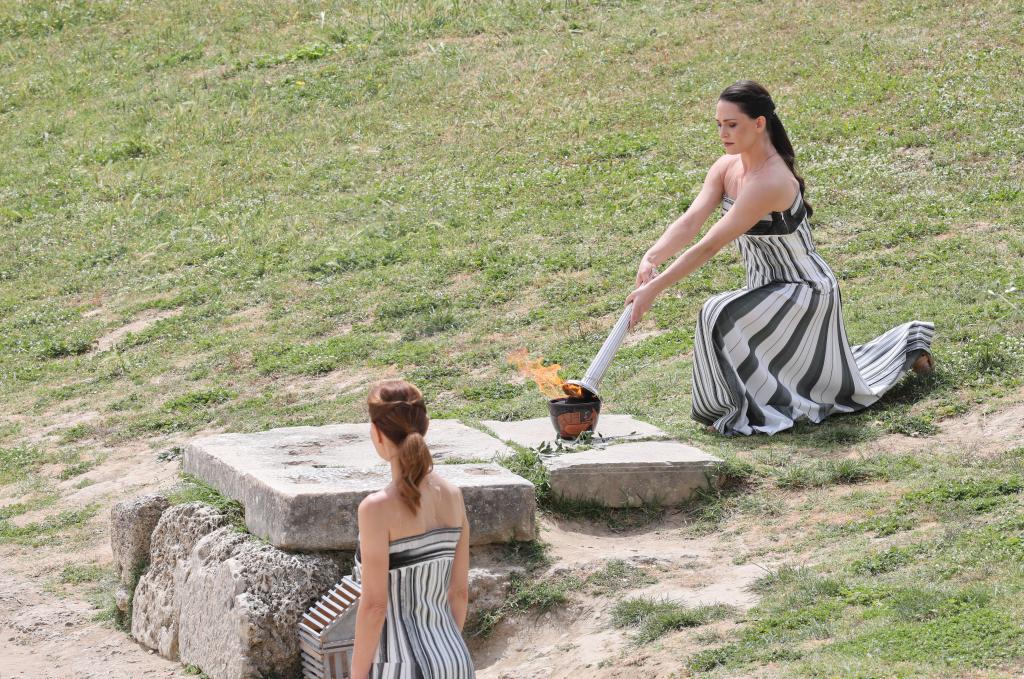
Following a dance performance by the artists inspired by ancient Greek statues on the slope of the stadium, the High Priestess kindled the first Olympic torch for the Games and passed it to the first torchbearer, Greek rowing gold medalist Stefanos Ntouskos, along with an olive branch.
In parallel, a dancer released a white pigeon to spread the Olympic ideals of friendship and peace to the world as the flame's journey started.
Approximately 600 torchbearers will carry the Olympic flame over some 5,000km across Greece, passing through dozens of cities and archaeological sites, according to the Hellenic Olympic Committee.
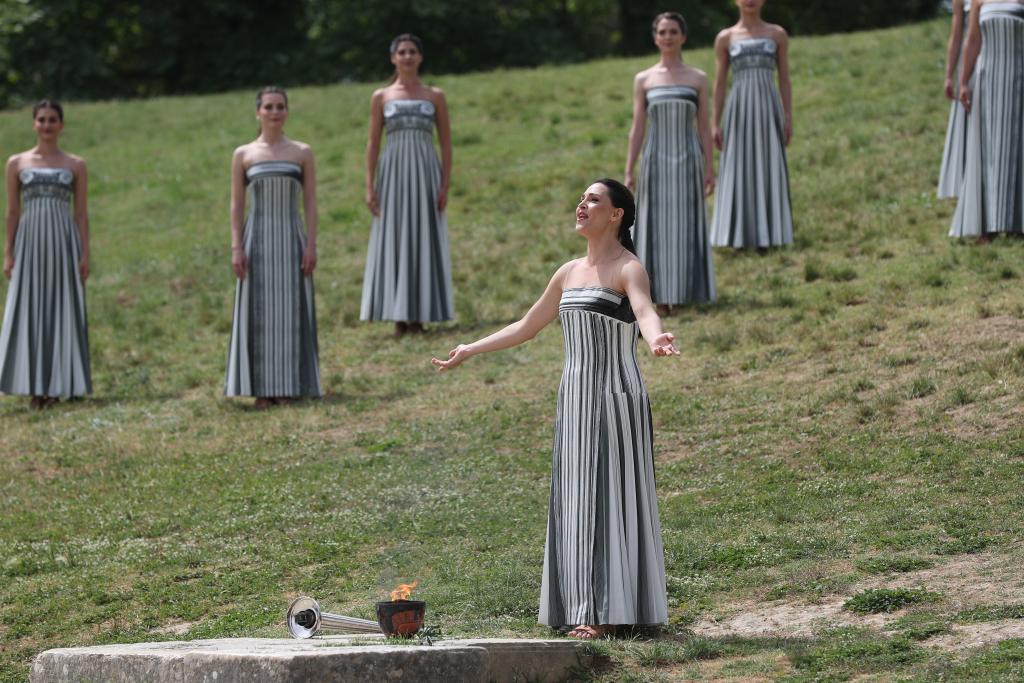
The flame will be handed over to the Paris 2024 organizers on April 26 at the Panathenaic Stadium in Athens, the venue of the first modern Olympics in 1896.
The following day, it will board Belem, a French three-masted vessel that was launched in 1896, on Piraeus port.
The Paris Olympics will be held from July 26 to August 11.
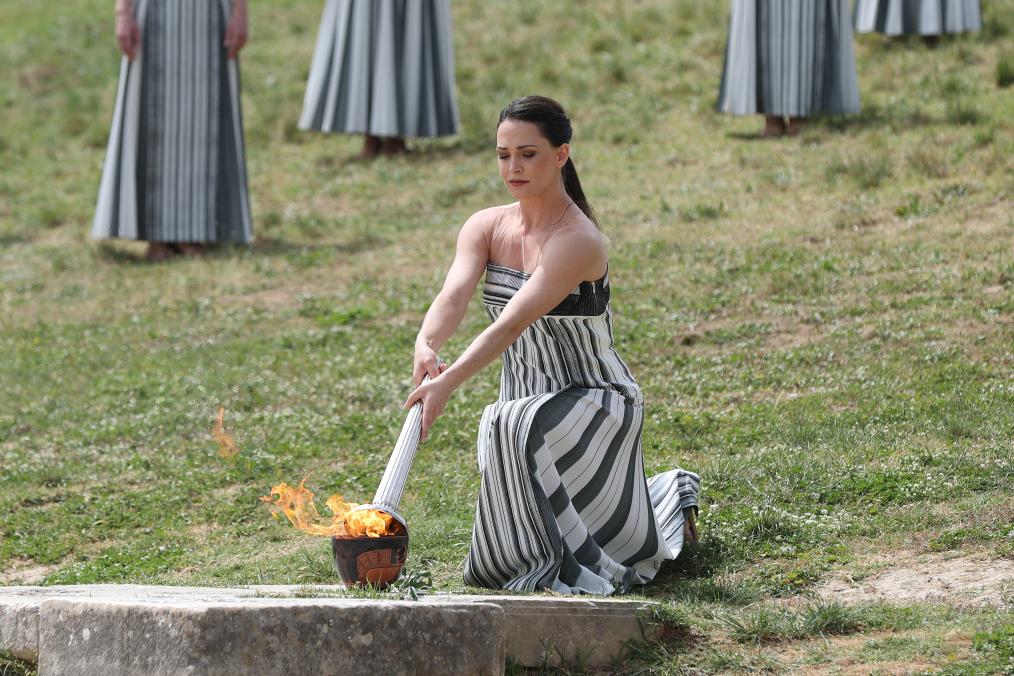
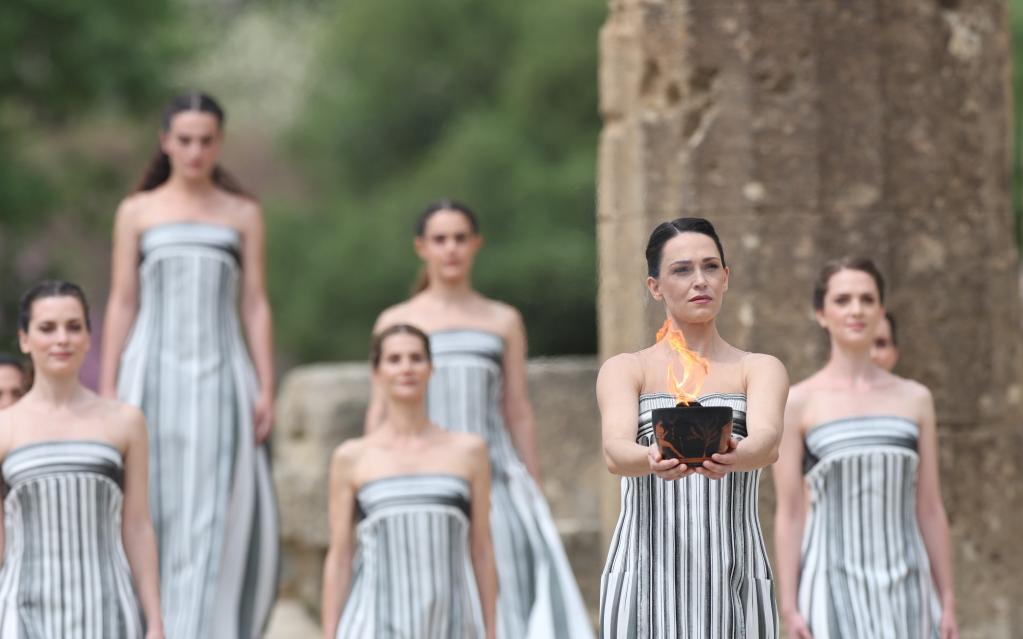
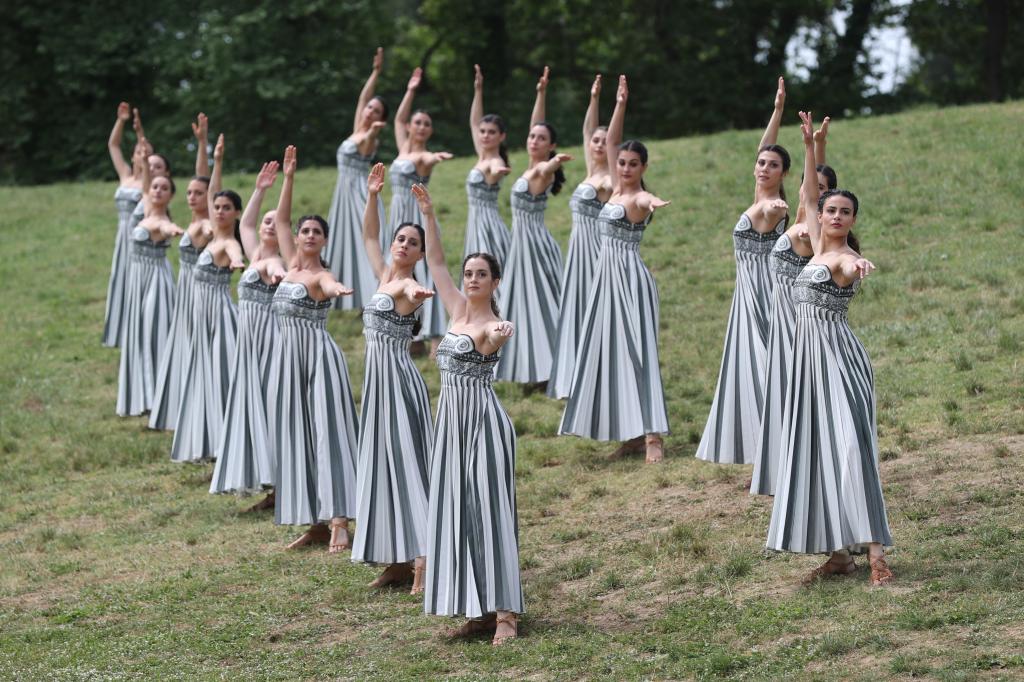
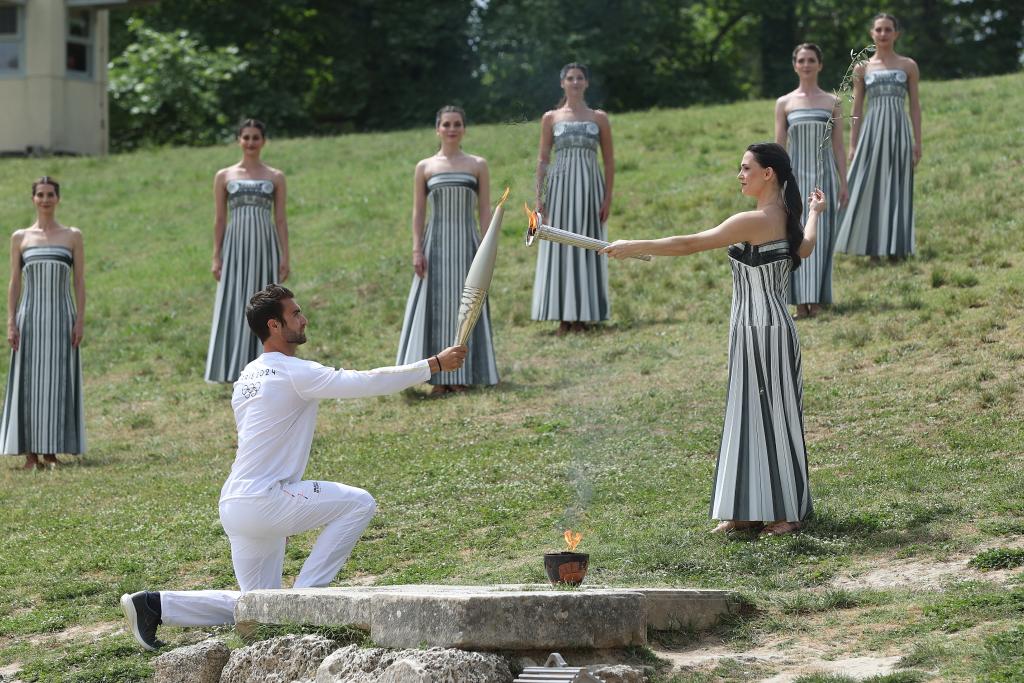

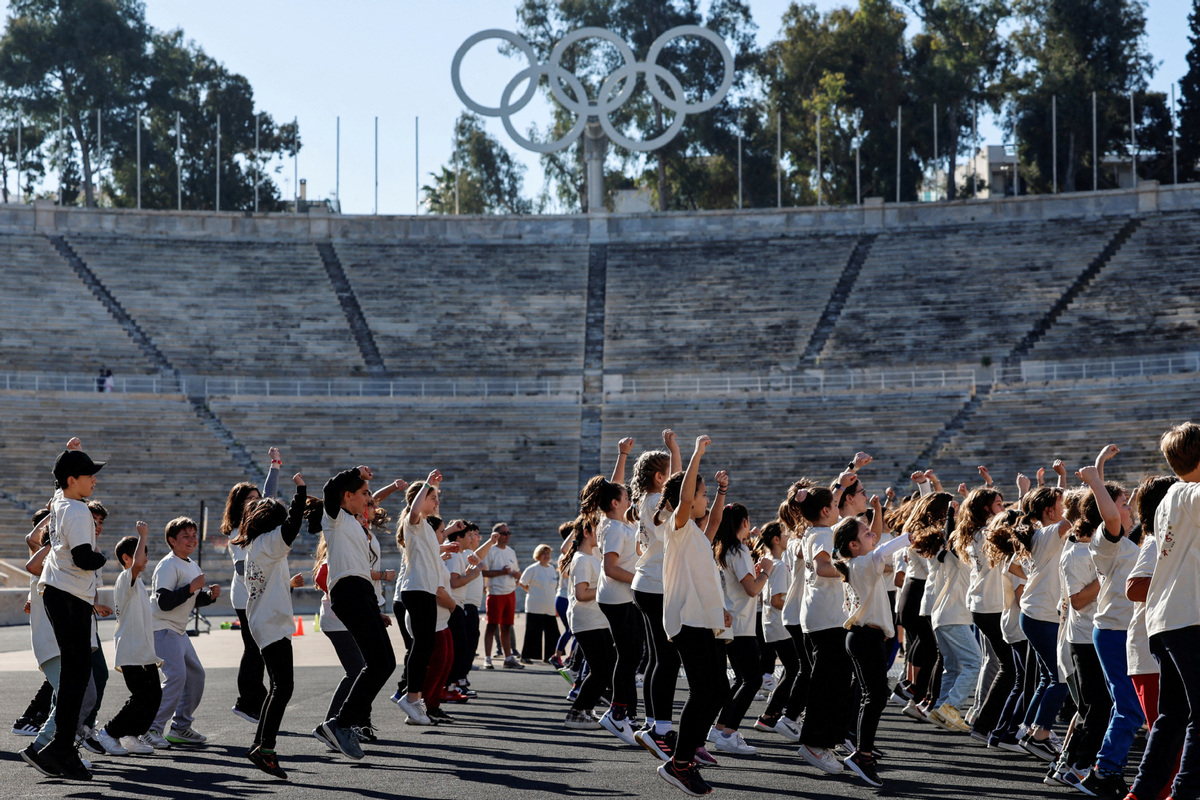
OLYMPIA, Greece - Nearly 100 days before the 2024 Paris Games open, the Olympic flame will be lit in ancient Olympia Tuesday for a torch relay stretching from the Acropolis to French Polynesia.
Some 600 dignitaries are expected at the ceremony on Tuesday, headed by Greek President Katerina Sakellaropoulou and International Olympic Committee President Thomas Bach.
The ritual will see actresses in the role of ancient priestesses coaxing the Olympic flame into life with the help of a parabolic polished mirror in Olympia, southwestern Greece, where the Games were born in 776 BC.
American mezzo soprano Joyce DiDonato is to deliver the Olympic anthem.
The ceremony is conducted at the ruins of the 2,600-year-old Temple of Hera, and sets off the Olympic torch relay that marks the countdown for each Games.
Cloudy skies are forecast for Tuesday, but organisers traditionally hold a test run a day earlier as a precaution. Sunnier weather that should enable the flame to be lit is expected Monday.
The torch harks back to the ancient Olympics, when a sacred flame burned throughout the Games. The tradition was revived in 1936 for the Berlin Games.
The first relay runner will be Greece's 2020 Olympics rowing champion Stefanos Douskos.
Retired French swimmer Laure Manaudou, who won her first gold medal in the 2004 Athens Olympics, is strongly tipped to be France's first torchbearer in Olympia, according to sources in Greece.
During the 11-day relay on Greek soil, some 600 torchbearers will carry the flame over a distance of 5,000 kilometres (3,100 miles) through 41 municipalities.
Carried by ship
The Olympic flame will be handed over to Paris 2024 organisers in a ceremony at the all-marble Panathenaic Stadium, site of the first modern Olympic Games of 1896, on April 26.
Nana Mouskouri, the 89-year-old Greek singer with a worldwide following, has been invited to perform at the ceremony.
On April 27, the flame will begin its journey to France on board the 19th-century three-masted barque Belem, which was launched just weeks after the Athens 1896 Games.
A French historical monument, the Belem carried out trade journeys to Brazil, Guyana and the West Indies for nearly two decades.
France's last surviving three-mast steel-hulled boat, it is expected to arrive in Marseille on May 8.
Ten thousand torchbearers will then carry the flame across 64 French territories.
It will travel through 400 towns and dozens of tourist attractions during its 12,000-kilometre (7,500-mile) journey through mainland France and overseas French territories in the Caribbean, Indian Ocean and Pacific.
On July 26 it will form the centrepiece of the Paris Olympics opening ceremony on the river Seine -- the first time it has not been held in the Games' main stadium.
AFP
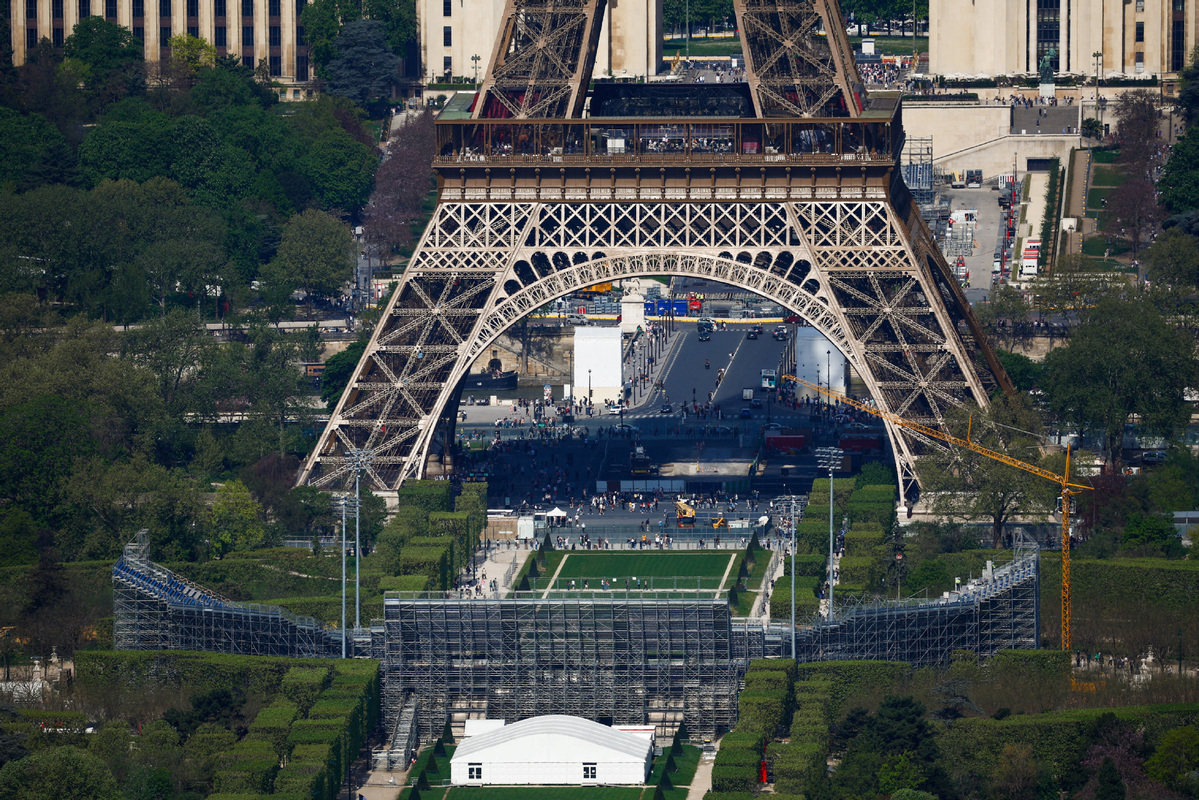
PARIS — Once the envy of other cities, Paris' creaking underground metro system has become a subject of daily frustration for users, just as the French capital gears up to host this year's Olympics.
"It's really difficult and we're not even at the Olympics yet, when there'll be millions of people on it," Juliette Fayaud, a 26-year-old restaurant worker, told AFP at a station along the metro's Line 8.
"There aren't enough trains. Sometimes, during rush hour, there's a train every five minutes when you need them every two or three," she said.
User satisfaction has plunged since the Covid-19 pandemic in 2020, when the RATP, which runs the capital's transport system, cut services as commuters stayed home en masse.
Many metro employees were furloughed and never returned to their jobs, while the training of new staff to replace them slowed significantly.
"I think it'll be horrible during the Olympics," 22-year-old saleswoman Gabrielle Camus, another daily user, told AFP, as she waited for a train. "I'm planning to use a bike and avoid the metro as much as possible."
On some lines, around one in five trains ran late last year, according to public data, with passengers sometimes facing waits of up to 10 or 15 minutes during the day on the worst-performing lines.
Commuters on the larger overground trains, which run on so-called RER lines, were offered refunds in 2023 for the third consecutive year due to punctuality problems. The service is still not back to pre-Covid levels.
With around seven million visitors expected in Paris during the Olympics, which runs from July 26 to Aug 11, as one of the main forms of transport for both tourists and locals, the commuter train system will be under severe scrutiny.
'Under-investment'
Major political pressure ahead of the Games — and the appointment of former prime minister Jean Castex as head of the RATP in 2022 — has led to gradual improvements in recent months, according to surveys by the capital's transport authority.
Castex warned in December that eight out of ten lines were "no longer in a state to provide a quality public service", which he blamed on "40 years of under-investment".
But, thanks in part to a major staff recruitment drive, all lines — with the exception of the 3, the 8 and the RER C — reached the minimum performance standard of 90 percent punctuality in March, according to the latest data.
Workers are also racing to complete key line extensions ahead of the Olympics, notably to connect the southern Orly airport to the metro's line 14, and a new transport node near the Stade de France, which will host athletics, in the north.
"It's a challenge that we are able to meet," the head of the greater Paris region, Valerie Pecresse, told reporters as she presented her transport plans for the Olympics in late March.
Some metro or RER lines, particularly those serving the soccer, tennis or athletics stadiums, will have up to 71 percent more trains than a usual summer's day.
The challenge is not so much the volume of travelers — overall traffic is expected to be no higher than a normal working day — but it is the peaks in demand as fans enter and leave stadiums.
"You shouldn't be scared to do a bit of walking," Pecresse told Parisians. "It's good for your health."
'Key issue'
In a city that has been gradually squeezing out cars, Paris is also keen to show off its recent cycling revolution.
Each Olympic sports venue will be accessible by bike, with around 415 kilometers of new cycle lanes built ahead of the Games, as well as 20,000 bicycle parking spots.
There will be no parking provision for cars at sports venues, however, and traffic jams in the capital are expected to be worse than usual due to road closures.
Chief organizer Tony Estanguet last week sounded confident that the city's trains, buses, trams and cycle lanes could handle the strain.
"It's a key issue for the smooth organization and success of our event. We're well aware of that," he told reporters.
Paris's two main airports — Charles de Gaulle and Orly — are also gearing up to play key roles and have installed 15 new baggage inspection lines between them.
"The infrastructure is ready," the director general of the airports' operating company said recently.
Traffic is expected to be similar to summer averages of 300,000 arrivals per day, but with a major spike in demand in the days after the closing ceremony on Aug 11.
AFP

Track and field is set to become the first sport to introduce prize money at the Olympics, with World Athletics saying on Wednesday it will pay $50,000 to gold medalists in Paris.
The move is a symbolic break with the amateur past of the Olympics in one of the Games' most-watched events.
The governing body of athletics said it was setting aside $2.4 million to pay the gold medalists across the 48 men's, women's and mixed events on the track and field program for this year's Paris Olympics. Relay teams will split the $50,000 between their members. Payments for silver and bronze medalists are planned to start from the 2028 Olympics in Los Angeles.
World Athletics president Sebastian Coe told reporters that the move is meant "to recognize that the revenue share that we receive is in large part because our athletes are the stars of the show".
The prize money will come out of the share of Olympic revenue which the International Olympic Committee distributes to World Athletics. However, the move could upset the balance of power in the Olympic Movement ahead of the Paris Games. Coe said World Athletics only gave the IOC "a heads-up" of its intentions on Wednesday morning, shortly before it published its announcement.
In response, the IOC said it was up to each sport's governing body to decide how to spend its share of Olympic revenue.
"The IOC redistributes 90 percent of all its income, in particular to the National Olympic Committees (NOCs) and International Federations (IFs)," the IOC said. "This means that, every day, the equivalent of $4.2 million goes to help athletes and sports organizations at all levels around the world. It is up to each IF and NOC to determine how to best serve their athletes and the global development of their sport."
The modern Olympics originated as an amateur sports event and the IOC does not award prize money. However, many medalists receive payments from their countries' governments, national sports bodies or from sponsors.
"I'm probably the last generation to have been on the 75-pence (95-cent) meal voucher and second-class rail fare, competing for my own country. So believe me, I do understand the nature of the transition we've been in," Coe said.
The British runner won gold in the 1,500 meters at the 1980 and 1984 Games in an era when Olympic track was on the verge of opening up to professional athletes.
"It's a completely different planet from when I was competing, so it's very important that this sport recognizes the change in that landscape and the added pressures on many competitors."
The United States Olympic and Paralympic Committee awarded $37,500 to gold medalists at the last Summer Games in Tokyo in 2021.Singapore's National Olympic Council promises $1 million for Olympic gold, a feat only achieved once so far by a Singaporean competitor.
In sports like tennis and golf, the Olympic tournament is the only time in a season that many pro players compete for free, with medals on offer but no prize money. But Coe didn't want to speculate on whether other events could follow track and field's lead.
"I've always made it a point not to speak on behalf of other sports," Coe said.
The move by World Athletics could be seen as an indicator of Coe's intentions for the Olympics as a whole if he makes a run for the IOC presidency.
"I haven't ruled it in, and I certainly haven't ruled it out," Coe said last year when asked whether he would consider running for the IOC's top post when Thomas Bach's term ends in 2025. The IOC typically disapproves of any public campaigning for the presidency and Coe's comments drew criticism from Bach.
Agencies Via Xinhua
